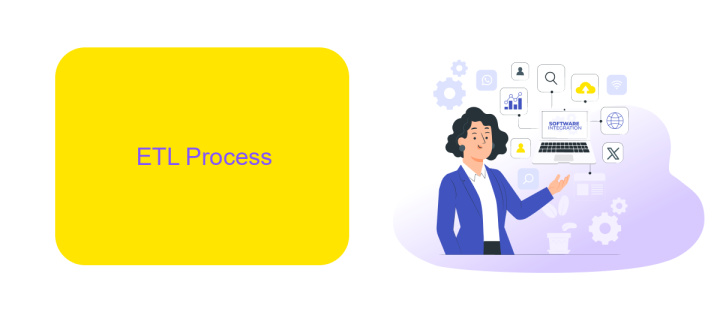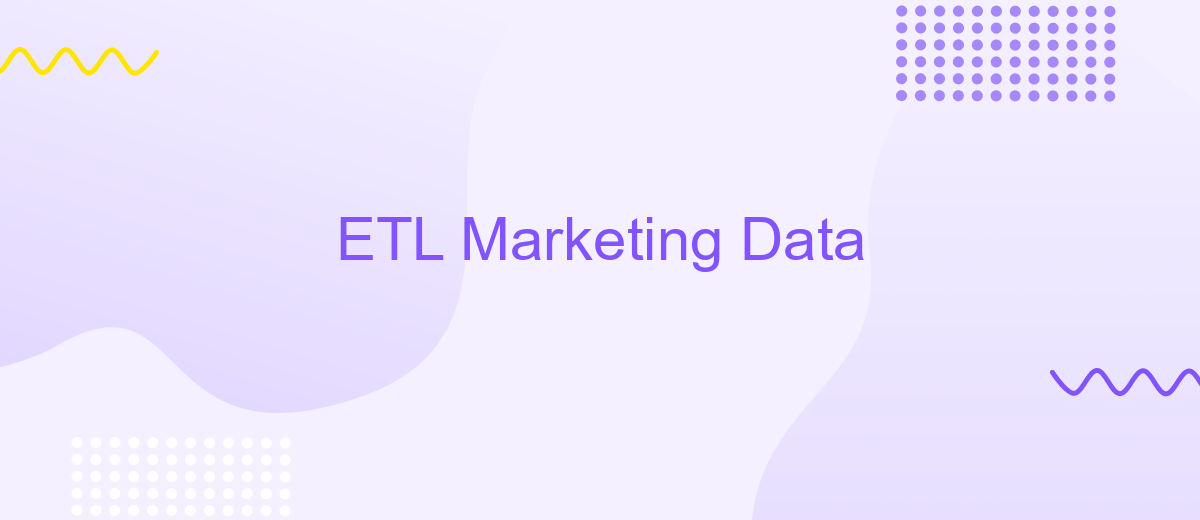ETL Marketing Data
ETL (Extract, Transform, Load) processes are pivotal in marketing data management, enabling businesses to efficiently gather, refine, and utilize vast amounts of information. By streamlining data integration from multiple sources, ETL ensures accurate and actionable insights, driving informed decision-making and strategic planning. This article delves into the importance of ETL in marketing, highlighting its role in enhancing data quality and operational efficiency.
Introduction
In today's digital age, businesses generate vast amounts of data from various marketing channels. Efficiently managing and leveraging this data is crucial for informed decision-making and strategic planning. ETL (Extract, Transform, Load) processes play a pivotal role in consolidating and optimizing marketing data from diverse sources.
- Extraction: Gathering data from multiple marketing platforms such as social media, email campaigns, and web analytics.
- Transformation: Cleaning, filtering, and structuring the data to ensure consistency and accuracy.
- Loading: Importing the transformed data into a centralized data warehouse or analytics platform for further analysis.
Integrating these data sources can be challenging, but tools like ApiX-Drive simplify the process by automating data transfers between different systems. By streamlining ETL processes, businesses can gain valuable insights, enhance their marketing strategies, and ultimately drive growth.
ETL Process

The ETL (Extract, Transform, Load) process is a crucial component in managing marketing data. It involves extracting data from various sources, transforming it into a suitable format, and loading it into a data warehouse or other storage systems. This process ensures that data is clean, consistent, and ready for analysis. During extraction, data is gathered from multiple sources such as CRM systems, social media platforms, and web analytics tools. The transformation phase involves cleaning, filtering, and structuring the data to meet specific business requirements. Finally, the data is loaded into a centralized repository where it can be accessed for reporting and analysis.
To streamline the ETL process, businesses often use integration services like ApiX-Drive. ApiX-Drive allows for seamless data transfer between various applications and platforms, reducing the complexity of manual data handling. With its user-friendly interface, businesses can set up automated workflows to extract, transform, and load data without the need for extensive technical expertise. This not only saves time but also ensures data accuracy and reliability, enabling marketing teams to make data-driven decisions more efficiently.
Data Sources

ETL (Extract, Transform, Load) processes in marketing data management rely on various data sources to gather comprehensive insights. These sources can vary significantly depending on the specific needs of the organization and the marketing channels they utilize. Common data sources include:
- CRM Systems: Customer Relationship Management systems like Salesforce or HubSpot store valuable customer interaction data.
- Web Analytics Tools: Platforms such as Google Analytics provide insights into website traffic and user behavior.
- Social Media Platforms: Data from Facebook, Instagram, Twitter, and LinkedIn help in understanding social media engagement and trends.
- Email Marketing Software: Tools like Mailchimp and SendGrid offer data on email campaigns, open rates, and click-through rates.
- Advertising Platforms: Google Ads, Facebook Ads, and other PPC platforms provide performance data on ad campaigns.
Integrating these diverse data sources can be challenging, but services like ApiX-Drive simplify the process by offering automated data integration solutions. ApiX-Drive allows seamless connection and synchronization of data from multiple platforms, ensuring that marketers have a unified view of their data for more effective analysis and decision-making.
Data Warehousing

Data warehousing is a crucial component of ETL marketing data, providing a centralized repository for storing, managing, and analyzing large volumes of data from multiple sources. This allows businesses to make data-driven decisions, streamline operations, and gain valuable insights into customer behavior and market trends.
By consolidating data from various marketing channels, such as social media, email campaigns, and customer relationship management (CRM) systems, data warehouses enable marketers to create comprehensive and accurate reports. This integration helps in identifying key performance indicators (KPIs) and measuring the effectiveness of marketing strategies.
- Centralized data storage
- Improved data quality and consistency
- Enhanced data analysis and reporting
- Scalability to handle growing data volumes
Tools like ApiX-Drive facilitate seamless integration of different data sources into the data warehouse. With ApiX-Drive, businesses can automate data transfers, ensuring that the data warehouse is always up-to-date with the latest information. This automation reduces manual effort and minimizes the risk of errors, allowing marketing teams to focus on strategic initiatives rather than data management.
- Automate the work of an online store or landing
- Empower through integration
- Don't spend money on programmers and integrators
- Save time by automating routine tasks
Data Visualization and Analysis
Effective data visualization and analysis are crucial for deriving actionable insights from marketing data. By transforming raw data into visual formats such as charts, graphs, and dashboards, businesses can easily identify patterns, trends, and anomalies. Tools like Tableau, Power BI, and Google Data Studio are popular choices for creating interactive visualizations that facilitate better decision-making. These tools allow marketers to customize their reports, enabling them to focus on specific metrics that are most relevant to their goals.
Integrating various data sources into a unified visualization platform can be challenging, but services like ApiX-Drive simplify this process. ApiX-Drive enables seamless integration between different marketing tools and data platforms, ensuring that all relevant data is easily accessible and up-to-date. By automating data extraction, transformation, and loading (ETL), ApiX-Drive helps marketers save time and reduce errors, allowing them to focus on analyzing the data rather than managing it. This streamlined approach enhances the overall efficiency of data-driven marketing strategies.
FAQ
What is ETL in marketing data?
Why is ETL important for marketing analytics?
How often should the ETL process be run for marketing data?
What are the challenges of implementing ETL for marketing data?
Can ETL processes be automated for marketing data?
Apix-Drive is a simple and efficient system connector that will help you automate routine tasks and optimize business processes. You can save time and money, direct these resources to more important purposes. Test ApiX-Drive and make sure that this tool will relieve your employees and after 5 minutes of settings your business will start working faster.


